The HyperTexts
The Best Valentine's Day Poems of All Time
Who wrote the best Valentine's Day poems? Picking the greatest
love poetry
of all time was
a matter of personal taste and fancy, so if you
disagree with my choices, please feel free to compile your own. But it never
hurts to compare notes.
Please be sure not to miss my pick as the best love poem of all time, Hart
Crane's rhapsodic, exquisitely lovely and mysterious "Voyages."
Permit me voyage, love, into your hands ...
―Hart Crane, "Voyages I, II and III"
These are my top ten love poems of all time, and all are included here, in full:
(10) She Walks in Beauty, Like the Night by Lord Byron
(9)
How Do I Love Thee?
by Elizabeth Barrett Browning
(8) They Flee from Me and Whoso List to Hunt by Sir Thomas Wyatt
(7)
Song For The Last Act
by Louise Bogan
(6) Bread and Music by Conrad Aiken
(5) The epigrams of the immortal Sappho of Lesbos
(4)
Sweet Rose of Virtue
by William Dunbar
(3)
Music When Soft Voices Die (To
—)
by Percy Bysshe Shelley
(2)
To Earthward by Robert Frost
(1)
Voyages
by Hart Crane
HIGH HONORABLE MENTION: Dover Beach by Matthew Arnold;
Lullaby by W. H. Auden;
Wild Nights and
Come Slowly, Eden by Emily Dickinson;
Cynara by
Ernest Dowson;
La Figlia Che Piange (The Weeping Girl)
by T. S. Eliot; Bright Star by John
Keats;
Go, Lovely Rose by Edmund Waller;
When You Are Old by William Butler Yeats;
The Song of Solomon; and the best love sonnets of Edna St. Vincent
Millay and William Shakespeare.
Did you know that one of the world's greatest love poets, albeit one greatly
undervalued today, wrote the first Valentine for his wife from his prison cell
in the Tower of London? You can read the first Valentine poem, My Very
Gentle Valentine, in my translation from the French of the
magnificent Charles d'Orleans. Is the original Valentine still the best, or will
you give the nod to Rumi, Sappho, Shakespeare, or some other poet?
I have also included some of my favorite Urdu love poems, which I have
translated into modern English, just in time for Valentine's Day. For example
...
Last night, your memory stole into my heart—
as spring sweeps uninvited into barren gardens,
as morning breezes reinvigorate dormant deserts,
as a patient suddenly feels better, for no apparent reason ...
―Faiz Ahmed Faiz, translation by Michael
R. Burch
Who were the best Valentine's Day poets? My top ten love poets are: Louise Bogan, Robert Burns,
Hart Crane, e. e. cummings, Ernest Dowson, Robert Frost, Pablo Neruda, Rumi, Sappho
and Walt Whitman. Other great penners of love poems include W. H.
Auden, William Blake, Elizabeth Barrett Browning, Robert Browning, Lord Byron, Emily Dickinson,
John Donne, T. S. Eliot, Hafez, Robert Herrick, Langston Hughes, Ben Jonson, John Keats,
Andrew Marvell, Edna St. Vincent Millay, John Milton, Kevin N. Roberts, Shakespeare, Percy Bysshe Shelley, William Butler Yeats, William Wordsworth and
Sir Thomas Wyatt.
compiled by
Michael R. Burch
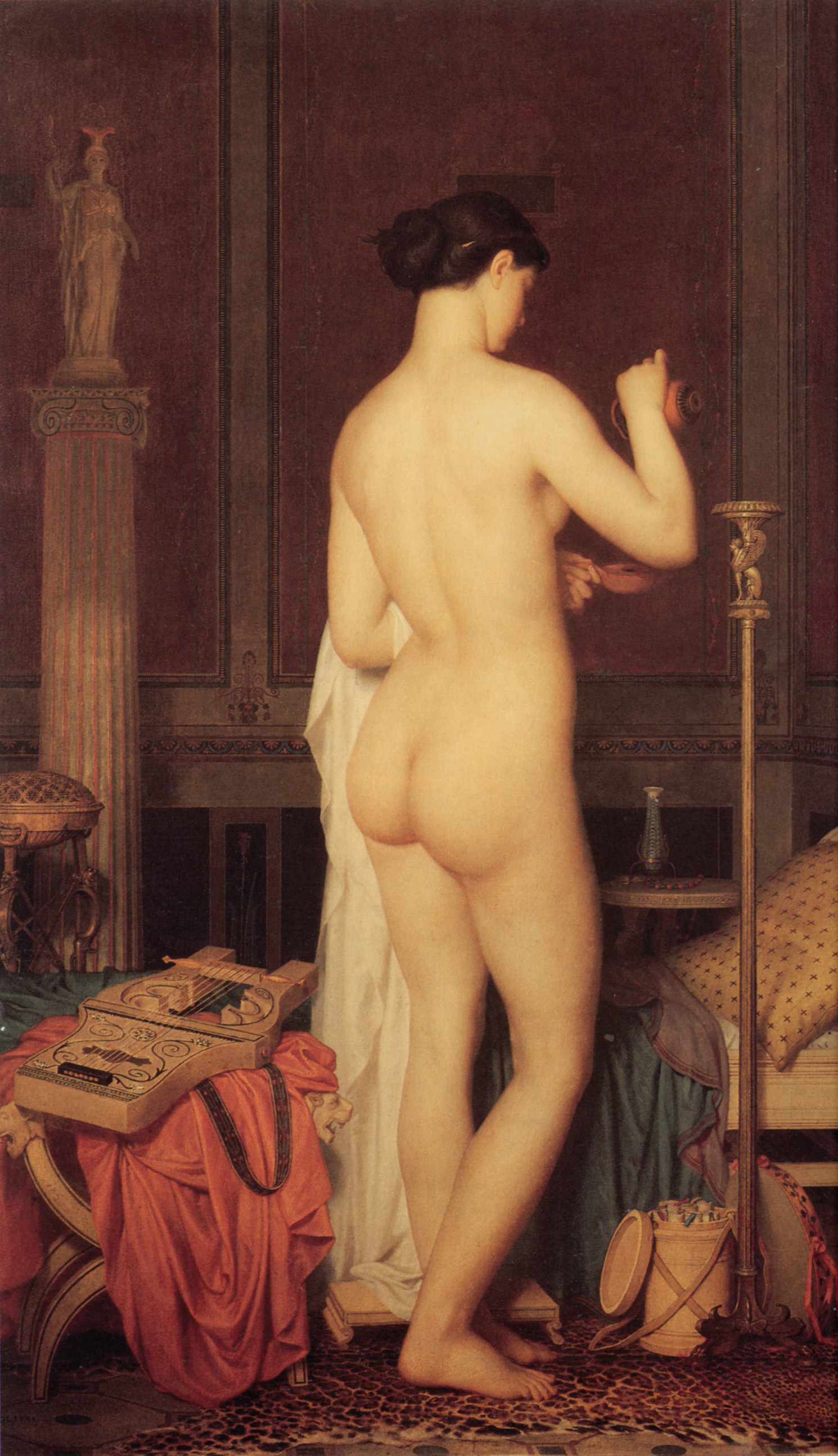
Gleyre Le Coucher de Sappho
by Marc-Charles-Gabriel Gleyre
Sappho of Lesbos is the first great female poet still known to us today,
and she remains one of the very best love poets of all time, regardless of gender.
She is so revered for her erotic love poetry that we get our terms "sapphic" and "lesbian" from her name
and island of residence. And, as you can see from the epigrams
below, she remains a timeless treasure:
Sappho, fragment 42
loose translation by Michael R. Burch
Eros harrows my heart:
wild winds whipping desolate mountains,
uprooting oaks.
Eros was the ancient Greek god of erotic love, equivalent to the Roman love god
Cupid. Eros and Cupid were often depicted as mischievous boys shooting amorous
darts at defenseless humans. Ancient poets often complained about the antics of
Eros and Cupid, who made them do inadvisable things, and their protestations
inspired this poem of mine:
Preposterous Eros
by Michael R. Burch
Preposterous Eros shot me in
the buttocks, with a Devilish grin,
spent all my money in a rush
then left my heart effete pink mush.
Sappho, fragment 155
loose translation by Michael R. Burch
A short transparent frock?
It's just my luck
your lips were made to mock!

The poet Anne Sexton
Strange Currents
by Amir Khusrow
loose translation
by Michael R. Burch
O Khusrow, the river of love
exhibits strange tides—
the one who would swim in it invariably drowns,
while the one who surrenders, survives.
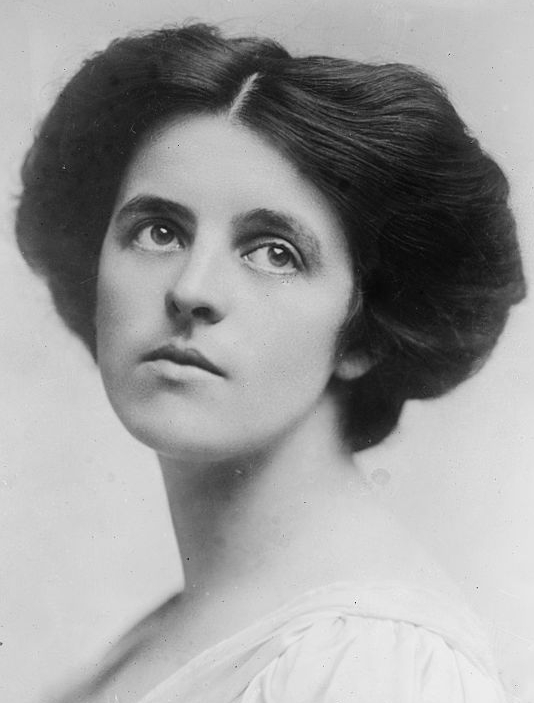
The poet Dorothy Parker
Autumn Valentine
by Dorothy Parker
In May my heart was breaking—
Oh, wide the wound, and deep!
And bitter it beat at waking,
And sore it split in sleep.
And when it came November,
I sought my heart, and sighed,
"Poor thing, do you remember?"
"What heart was that?" it cried.
Infectious!
by Hafiz aka Hafez, a Persian poet
loose translation/interpretation by Michael R. Burch
I became infected with happiness tonight
as I wandered idly, singing in the starlight.
Now I'm wonderfully contagious—
so kiss me!
Before I reveal my favorite love poems of all time, I'm going to offer a few of
my own poems, which you are welcome to share with that "special someone," free
of charge for noncommercial purposes.
Valentine Haiku
by Michael R. Burch
Teach me to love:
to fly beyond sterile Mars
to percolating Venus.
Valentine Haiku
by Michael R. Burch
A leaf brushes my cheek:
a subtle lover’s
gentlest caress.
don’t forget ...
by Michael R. Burch
don’t forget to remember
that Space is curved
(like your Heart)
and that even Light is bent
by your Gravity.
I dedicated this poem to the love of my life, but you are welcome to dedicate it
to the love of yours. The opening lines were borrowed from a famous love poem by
e. e. cummings.
Passionate One
by Michael R. Burch
Love of my life,
light of my morning―
arise, brightly dawning,
for you are my sun.
Give me of heaven
both manna and leaven―
desirous Presence,
Passionate One.
Kissin’ ’n’ buzzin’
by Michael R. Burch
Kissin’ ’n’ buzzin’
the bees rise
in a dizzy circle of two.
Oh, when I’m with you,
I feel like kissin’ ’n’ buzzin’ too.
Let Me Give Her Diamonds
by Michael R. Burch
Let me give her diamonds
for my heart's
sharp edges.
Let me give her roses
for my soul's
thorn.
Let me give her solace
for my words
of treason.
Let the flowering of love
outlast a winter
season.
Let me give her books
for all my lack
of reason.
Let me give her candles
for my lack
of fire.
Let me kindle incense,
for our hearts
require
the breath-fanned
flaming perfume
of desire.
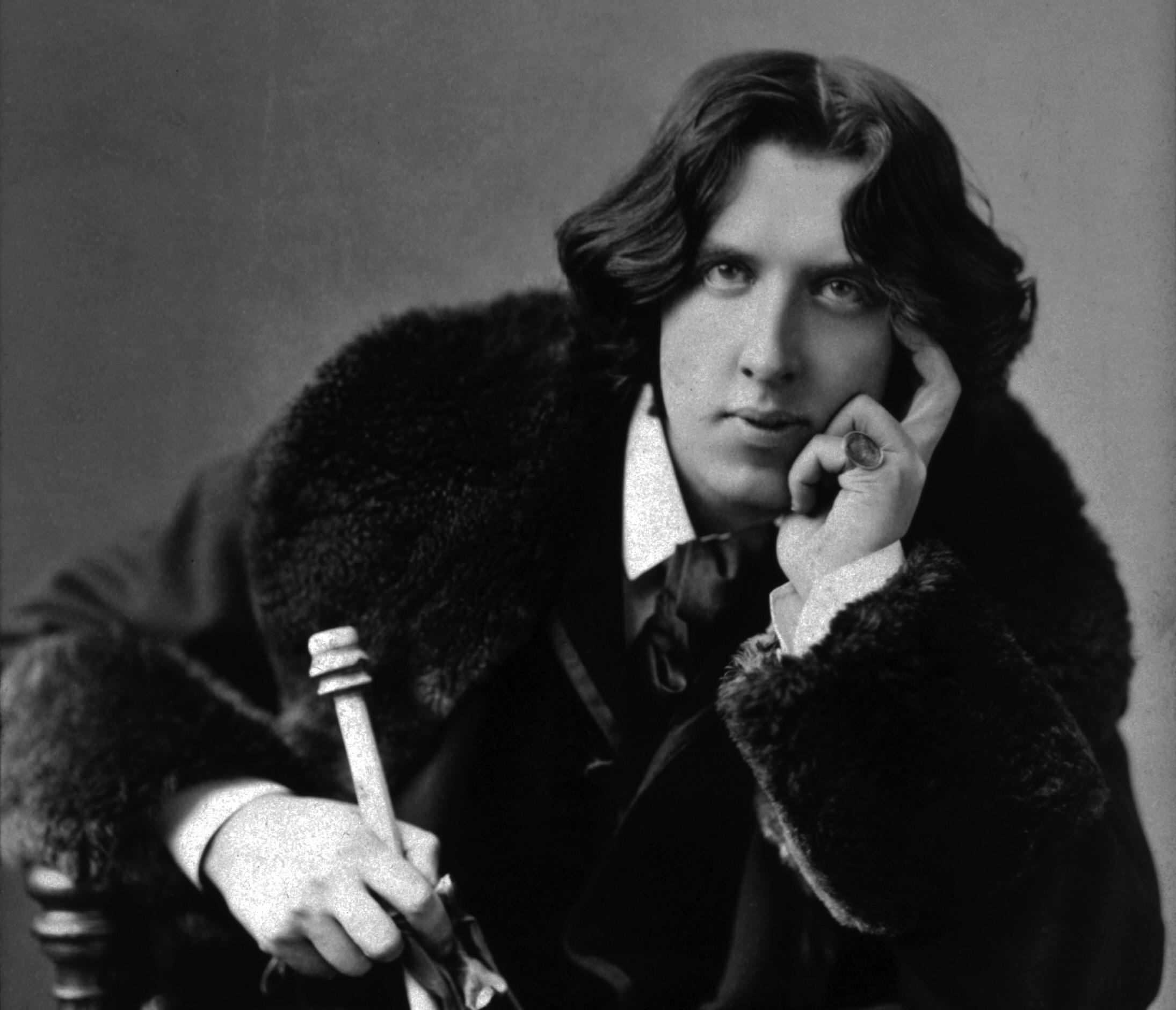
The poet Oscar Wilde
Moments
by Michael R. Burch
There were moments
full of promise,
like the petal-scented rainfall
of early spring,
when to hold you in my arms
and to kiss your willing lips
seemed everything.
There are moments
strangely empty
full of pale unearthly twilight
—how the cold stars stare!—
when to be without you
is a dark enchantment
the night and I share.
Are You the Thief
by Michael R. Burch
When I touch you now,
O sweet lover,
full of fire,
melting like ice
in my embrace,
when I part the delicate white lace,
baring pale flesh,
and your face
is so close
that I breathe your breath
and your hair surrounds me like a wreath ...
tell me now,
O sweet, sweet lover,
in good faith:
are you the thief
who has stolen my heart?
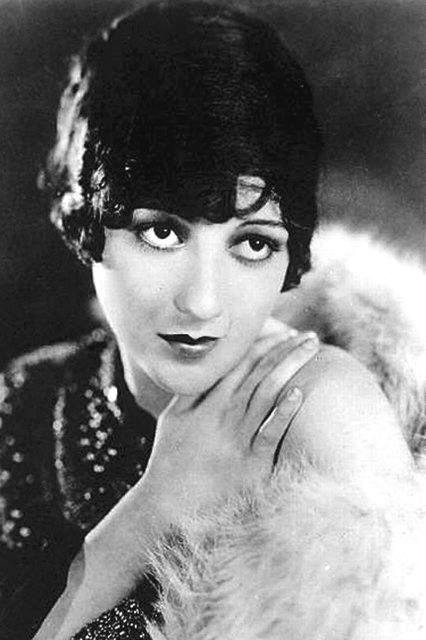
The poet Elinor Wylie
Because You Came to Me
by Michael R. Burch
Because you came to me with sweet compassion
and kissed my furrowed brow and smoothed my hair,
I do not love you after any fashion,
but wildly, in despair.
Because you came to me in my black torment
and kissed me fiercely, blazing like the sun
upon parched desert dunes, till in dawn’s foment
they melt, I am undone.
Because I am undone, you have remade me
as suns bring life, as brilliant rains endow
the earth below with leaves, where you now shade me
and bower me, somehow.
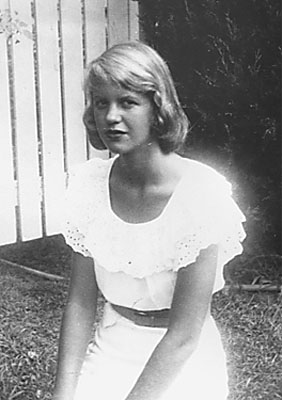
The poet Sylvia Plath
Again, if you like any of my poems above, you are welcome to share them, free of charge
for noncommercial purposes. You can find more of my love poems, which you
are also free to share, on the following pages:
Michael R. Burch Poetry
and
O, Terrible Angel. Now here, without further ado, are some of my favorite love poems
of all time, including love poems by some of the better contemporary poets I
have published through the years ...
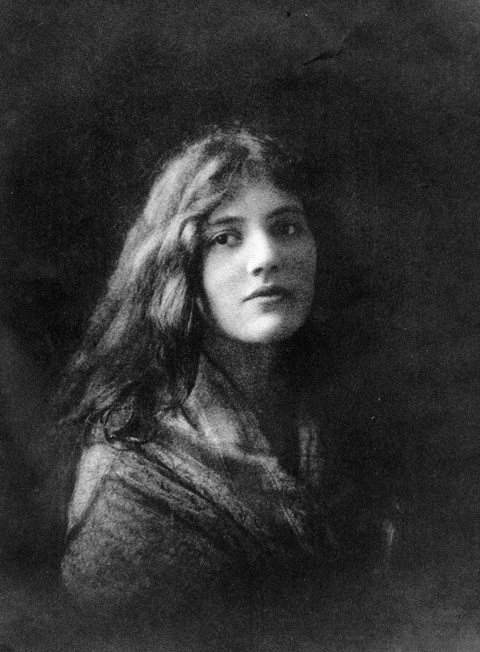
William Butler Yeats was the most famous Irish poet of all time, and his
unrequited love for the beautiful and dangerous revolutionary Maud Gonne helped
make her almost as famous as he was in Ireland. The moving poem below is Yeats'
loose translation of a Ronsard poem, in which Yeats imagines the love of his
life in her later years tending a fire.
When You Are Old
by William Butler Yeats
When you are old and grey and full of sleep,
And nodding by the fire, take down this book,
And slowly read, and dream of the soft look
Your eyes had once, and of their shadows deep;
How many loved your moments of glad grace,
And loved your beauty with love false or true,
But one man loved the pilgrim soul in you,
And loved the sorrows of your changing face;
And bending down beside the glowing bars,
Murmur, a little sadly, how Love fled
And paced upon the mountains overhead
And hid his face amid a crowd of stars.
How Do I Love Thee?
by Elizabeth Barrett Browning
How do I love thee? Let me count the ways.
I love thee to the depth and breadth and height
My soul can reach, when feeling out of sight
For the ends of Being and ideal Grace.
I love thee to the level of every day's
Most quiet need, by sun and candlelight.
I love thee freely, as men strive for Right;
I love thee purely, as they turn from Praise.
I love with a passion put to use
In my old griefs, and with my childhood's faith.
I love thee with a love I seemed to lose
With my lost saints,—I love thee with the breath,
Smiles, tears, of all my life!—and, if God choose,
I shall but love thee better after death.
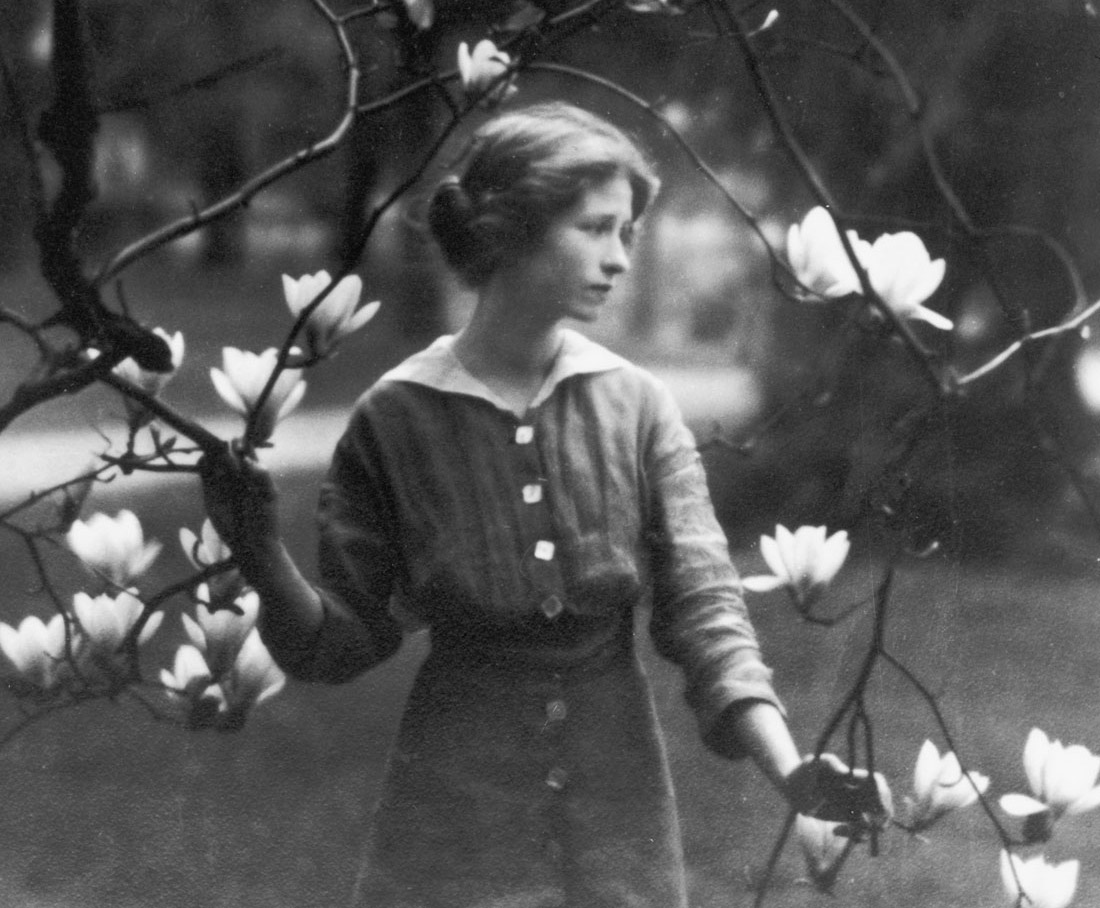
The poet Edna St. Vincent Millay
The Song of Solomon
attributed to King Solomon
I am the rose of Sharon, and the lily of the valleys.
As the lily among thorns, so is my love among the daughters.
As the apple tree among the trees of the wood, so is my beloved among the sons.
I sat down under his shadow with great delight, and his fruit was sweet to my taste.
He brought me to the banqueting house, and his banner over me was love.
Stay me with flagons, comfort me with apples: for I am sick of love.
His left hand is under my head, and his right hand doth embrace me.
I charge you, O ye daughters of Jerusalem, by the roes,
and by the hinds of the field, that ye stir not up, nor wake my love, till he please.
William Dunbar (1460-1525) was one of the first great Scottish poets, and is probably best known
today for
his poem "Lament for the Makiris" (i.e., Lament for the Makers, or Poets).
But this is my favorite poem of his―one I loved so much I chose to translate it
myself ...
Sweet Rose of Virtue
by William Dunbar
loose
translation/interpretation by Michael R. Burch
Sweet rose of virtue and of gentleness,
delightful lily of youthful wantonness,
richest in bounty and in beauty clear
and in every virtue men hold most dear―
except only that you are merciless.
Into your garden, today, I followed you;
there I found flowers of freshest hue,
both white and red, delightful to see,
and wholesome herbs, waving resplendently―
yet nowhere one leaf nor petal of rue.
I fear that March with his last arctic blast
has slain my fair flower and left her downcast;
whose piteous death does my heart such pain
that I long to replant love's root again―
so comforting her bowering leaves have been.
If the tenth line seems confusing, it helps to know that
rue symbolizes pity and also has medicinal uses; thus I believe the unrequiting
lover is being accused of a lack of compassion and perhaps of withholding her
healing attentions. The penultimate line can be taken as a rather naughty double
entendre, but I will leave that interpretation up to the reader!
The next poem is interesting not only because it's lovely and touching, but
because the poet, Kevin Nicholas Roberts, claimed to be the reincarnation of
Algernon Charles Swinburne. And it was Swinburne who introduced the rondel to
English poetry, adapting it from the French rondeau. You can learn more
about Kevin Roberts and read more of his poems by clicking his hyperlinked name.
Rondel
by Kevin N.
Roberts
Our time has passed on swift and careless feet,
With sighs and smiles and songs both sad and sweet.
Our perfect hours have grown and gone so fast,
And these are things we never can repeat.
Though we might plead and pray that it would last,
Our time has passed.
Like shreds of mist entangled in a tree,
Like surf and sea foam on a foaming sea,
Like all good things we know can never last,
Too soon we'll see the end of you and me.
Despite the days and realms that we amassed,
Our time has passed.
She Walks In Beauty
by Lord Bryon
She walks in beauty, like the night
Of cloudless climes and starry skies;
And all that's best of dark and bright
Meet in her aspect and her eyes:
Thus mellow'd to that tender light
Which heaven to gaudy day denies.
One shade the more, one ray the less,
Had half impair'd the nameless grace
Which waves in every raven tress,
Or softly lightens o'er her face;
Where thoughts serenely sweet express
How pure, how dear their dwelling-place.
And on that cheek, and o'er that brow,
So soft, so calm, yet eloquent,
The smiles that win, the tints that glow,
But tell of days in goodness spent,
A mind at peace with all below,
A heart whose love is innocent!
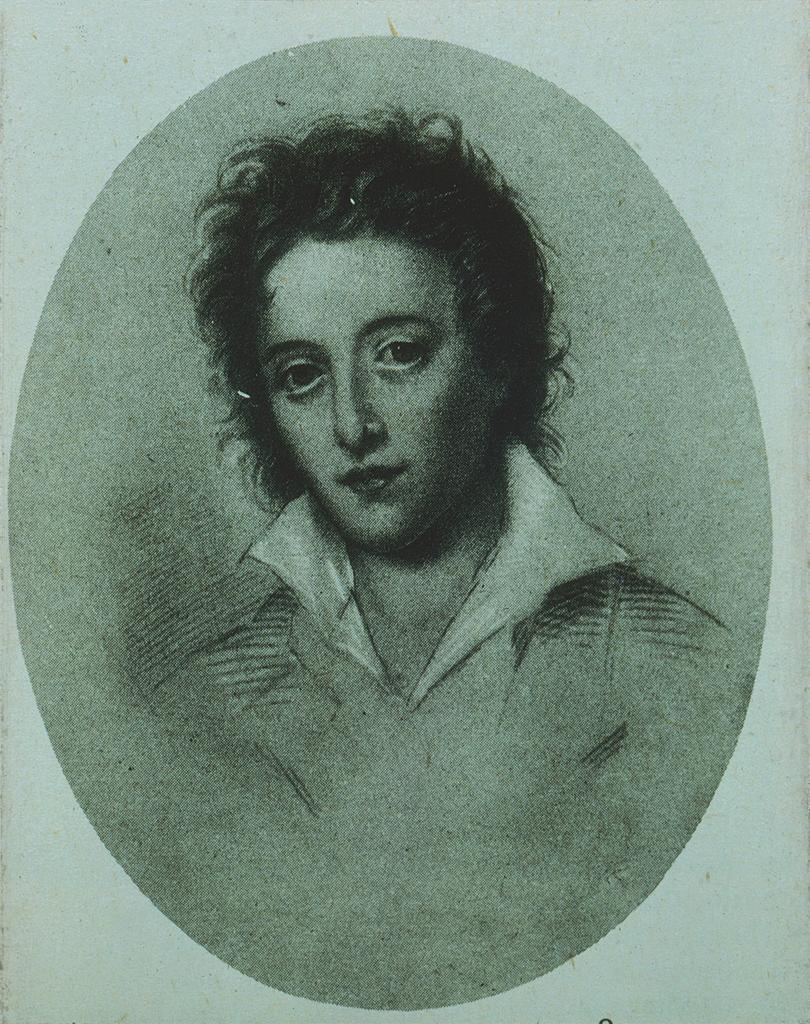
The poet Percy Bysshe Shelley
Music When Soft Voices Die (To
—)
by Percy Bysshe Shelley
Music, when soft voices die,
Vibrates in the memory—
Odours, when sweet violets sicken,
Live within the sense they quicken.
Rose leaves, when the rose is dead,
Are heaped for the belovèd's bed;
And so thy thoughts, when thou art gone,
Love itself shall slumber on.
Come Slowly, Eden
by Emily Dickinson
Come slowly, Eden
Lips unused to thee.
Bashful, sip thy jasmines,
As the fainting bee,
Reaching late his flower,
Round her chamber hums,
Counts his nectars—alights,
And is lost in balms!
The First Valentine
Charles d’Orleans (1394-1465), a French royal, the grandchild of Charles V, and
the Duke of Orleans, has been credited with writing the first Valentine card, in
the form of a poem for his wife. Charles wrote the poem in 1415 at age 21, in
the first year of his captivity while being held prisoner in the Tower of London
after having been captured by the British at the Battle of Agincourt. The Battle
of Agincourt forms the centerpiece of Shakespeare’s historical play Henry V,
in which Charles appears as a character with a number of lines. At age 16,
Charles had married the 11-year-old Bonne of Armagnac in a political alliance,
which explains the age difference he mentions in his poem. (Coincidentally, I
share his wife’s birthday, the 19th of February.) Unfortunately, Charles would
be held prisoner for a quarter century and would never see his wife again, as
she died before he was released. Why did Charles call his wife “Valentine”?
Well, his mother’s name was Valentina Visconti ...
My Very Gentle Valentine
by Charles d’Orleans (c. 1394-1465)
loose translation/interpretation by Michael R. Burch
My very gentle Valentine,
Alas, for me you were born too soon,
As I was born too late for you!
May God forgive my jailer
Who has kept me from you this entire year.
I am sick without your love, my dear,
My very gentle Valentine.
To Earthward
by Robert Frost
Love at the lips was touch
As sweet as I could bear;
And once that seemed too much;
I lived on air
That crossed me from sweet things,
The flow of — was it musk
From hidden grapevine springs
Downhill at dusk?
I had the swirl and ache
From sprays of honeysuckle
That when they’re gathered shake
Dew on the knuckle.
I craved strong sweets, but those
Seemed strong when I was young:
The petal of the rose
It was that stung.
Now no joy but lacks salt,
That is not dashed with pain
And weariness and fault;
I crave the stain
Of tears, the aftermark
Of almost too much love,
The sweet of bitter bark
And burning clove.
When stiff and sore and scarred
I take away my hand
From leaning on it hard
In grass or sand,
The hurt is not enough:
I long for weight and strength
To feel the earth as rough
To all my length.
Song: To Celia
by Ben Jonson
Drink to me, only, with thine eyes,
And I will pledge with mine;
Or leave a kiss but in the cup,
And I'll not look for wine.
The thirst that from the soul doth rise,
Doth ask a drink divine:
But might I of Jove's nectar sup,
I would not change for thine.
I sent thee, late, a rosy wreath,
Not so much honouring thee,
As giving it a hope, that there
It could not withered be.
But thou thereon didst only breathe,
And sent'st back to me:
Since when it grows, and smells, I swear,
Not of itself, but thee.
Lullaby
by W. H. Auden
Lay your sleeping head, my love,
Human on my faithless arm:
Time and fevers burn away
Individual beauty from
Thoughtful children, and the grave
Proves the child ephemeral:
But in my arms till break of day
Let the living creature lie,
Mortal, guilty, but to me
The entirely beautiful.
Soul and body have no bounds:
To lovers as they lie upon
Her tolerant enchanted slope
In their ordinary swoon,
Grave the vision Venus sends
Of supernatural sympathy,
Universal love and hope;
While an abstract insight wakes
Among the glaciers and the rocks
The hermit's carnal ecstacy.
Certainty, fidelity
On the stroke of midnight pass
Like vibrations of a bell
And fashionable madmen raise
Their pedantic boring cry:
Every farthing of the cost.
All the dreaded cards foretell.
Shall be paid, but from this night
Not a whisper, not a thought.
Not a kiss nor look be lost.
Beauty, midnight, vision dies:
Let the winds of dawn that blow
Softly round your dreaming head
Such a day of welcome show
Eye and knocking heart may bless,
Find our mortal world enough;
Noons of dryness find you fed
By the involuntary powers,
Nights of insult let you pass
Watched by every human love.
Go, Lovely Rose
by Edmund Waller
Go, lovely Rose,—
Tell her that wastes her time and me,
That now she knows,
When I resemble her to thee,
How sweet and fair she seems to be.
Tell her that's young,
And shuns to have her graces spied,
That hadst thou sprung
In deserts where no men abide,
Thou must have uncommended died.
Small is the worth
Of beauty from the light retir'd:
Bid her come forth,
Suffer herself to be desir'd,
And not blush so to be admir'd!
Bread and Music
by Conrad Aiken
Music I heard with you was more than music,
And bread I broke with you was more than bread;
Now that I am without you, all is desolate;
All that was once so beautiful is dead.
Your hands once touched this table and this silver,
And I have seen your fingers hold this glass.
These things do not remember you, belovèd,
And yet your touch upon them will not pass.
For it was in my heart you moved among them,
And blessed them with your hands and with your eyes;
And in my heart they will remember always,—
They knew you once, O beautiful and wise.
A Red, Red Rose
by Robert Burns
Oh my luve is like a red, red rose,
That's newly sprung in June:
Oh my luve is like the melodie,
That's sweetly play'd in tune.
As fair art thou, my bonie lass,
So deep in luve am I;
And I will luve thee still, my dear,
Till a' the seas gang dry.
Till a' the seas gang dry, my dear,
And the rocks melt wi' the sun;
And I will luve thee still, my dear,
While the sands o' life shall run.
And fare thee weel, my only luve!
And fare thee weel a while!
And I will come again, my luve,
Tho' it were ten thousand mile!
Sunset and Flowers
by
Martin Mc
Carthy
As the sultry sun slips from view,
let us do what gardeners do:
bearing water to the flowers,
let us tenderly tend this love of ours.
Distant Light
by Walid Khazindar
loose translation/interpretation by
Michael R. Burch
Bitterly cold,
winter clings to the naked trees.
If only you would free
the bright sparrows
from your fingertips
and unleash a smile—that shy, tentative smile—
from the imprisoned anguish I see.
Sing! Can we not sing
as if we were warm, hand-in-hand,
sheltered by shade from a sweltering sun?
Can you not always remain this way,
stoking the fire, more beautiful than expected, in reverie?
Darkness increases and we must remain vigilant
now that this distant light is our sole consolation—
this imperiled flame, which from the beginning
has been flickering,
in danger of going out.
Come to me, closer and closer.
I don't want to be able to tell my hand from yours.
And let's stay awake, lest the snow smother us.
This is a wonderfully moving poem by Walid Khazindar, who was born in 1950 in Gaza City. He is considered
to be one of the very best Palestinian poets; his poetry
has been said to be "characterized by metaphoric originality and a novel thematic approach
unprecedented in Arabic poetry." He was awarded the first Palestine Prize for
Poetry in 1997.
Here are three love poems by the great Persian poet and mystic, Rumi:
The Field
by Rumi
loose translation/interpretation by Michael R. Burch
Far beyond sermons of right and wrong there's a sunlit field.
I'll meet you there.
When the soul lazes in that lush grass
the world is too full for discussion.
Beyond
by Rumi
loose translation/interpretation by Michael R. Burch
Don’t demand union:
there’s a closer closeness, beyond.
The instant love descends to rest in me,
many beings become One.
In a single grain of wheat ten thousand sheaves germinate.
Within the needle’s eye innumerable stars radiate.
Two Insomnias
by Rumi
loose translation/interpretation by Michael R. Burch
When I’m with you, we’re up all night.
When we part, I’m unable to sleep.
I’m grateful for both insomnias
and the difference maker.
Song For The Last Act
by Louise Bogan
Now that I have your face by heart, I look
Less at its features than its darkening frame
Where quince and melon, yellow as young flame,
Lie with quilled dahlias and the shepherd's crook.
Beyond, a garden. There, in insolent ease
The lead and marble figures watch the show
Of yet another summer loath to go
Although the scythes hang in the apple trees.
Now that I have your face by heart, I look.
Now that I have your voice by heart, I read
In the black chords upon a dulling page
Music that is not meant for music's cage,
Whose emblems mix with words that shake and bleed.
The staves are shuttled over with a stark
Unprinted silence. In a double dream
I must spell out the storm, the running stream.
The beat's too swift. The notes shift in the dark.
Now that I have your voice by heart, I read.
Now that I have your heart by heart, I see
The wharves with their great ships and architraves;
The rigging and the cargo and the slaves
On a strange beach under a broken sky.
O not departure, but a voyage done!
The bales stand on the stone; the anchor weeps
Its red rust downward, and the long vine creeps
Beside the salt herb, in the lengthening sun.
Now that I have your heart by heart, I see.
Time in Eternity
by T. Merrill
When you were as an angel in my arms,
Had laid your bare head just below my chin,
Your length pressed up to mine, entrusting charms
My whole youth's starward longing could not win;
With still the murmur of your love in me,
Miracle-tones of all my lifelong hope,
I wished that there might start eternity
And seal forever that sweet envelope;
And as it did, my thoughts are now for you
As every star is blotted by the sun,
And so the sun itself
Has perished too,
And with it, every dream of mine
But one.
Friday
by Ann Drysdale
The print of a bare foot, the second toe
A little longer than the one which is
Traditionally designated "great".
Praxiteles would have admired it.
You must have left in haste; your last wet step
Before boarding your suit and setting sail,
Outlined in talcum on the bathroom floor
Mocks your habitual fastidiousness.
There is no tide here to obliterate
Your oversight. Unless I wipe or sweep
Or suck it up, it will not go away.
The thought delights me. I will keep the footprint.
Too slight, too simply human to be called
Token or promise; I am keeping it
Because it is a precious evidence
That on this island I am not alone.
Voyages
by Hart Crane
I
Above the fresh ruffles of the surf
Bright striped urchins flay each other with sand.
They have contrived a conquest for shell shucks,
And their fingers crumble fragments of baked weed
Gaily digging and scattering.
And in answer to their treble interjections
The sun beats lightning on the waves,
The waves fold thunder on the sand;
And could they hear me I would tell them:
O brilliant kids, frisk with your dog,
Fondle your shells and sticks, bleached
By time and the elements; but there is a line
You must not cross nor ever trust beyond it
Spry cordage of your bodies to caresses
Too lichen-faithful from too wide a breast.
The bottom of the sea is cruel.
II
—And yet this great wink of eternity,
Of rimless floods, unfettered leewardings,
Samite sheeted and processioned where
Her undinal vast belly moonward bends,
Laughing the wrapt inflections of our love;
Take this Sea, whose diapason knells
On scrolls of silver snowy sentences,
The sceptred terror of whose sessions rends
As her demeanors motion well or ill,
All but the pieties of lovers’ hands.
And onward, as bells off San Salvador
Salute the crocus lustres of the stars,
In these poinsettia meadows of her tides,—
Adagios of islands, O my Prodigal,
Complete the dark confessions her veins spell.
Mark how her turning shoulders wind the hours,
And hasten while her penniless rich palms
Pass superscription of bent foam and wave,—
Hasten, while they are true,—sleep, death, desire,
Close round one instant in one floating flower.
Bind us in time, O Seasons clear, and awe.
O minstrel galleons of Carib fire,
Bequeath us to no earthly shore until
Is answered in the vortex of our grave
The seal’s wide spindrift gaze toward paradise.
III
Infinite consanguinity it bears—
This tendered theme of you that light
Retrieves from sea plains where the sky
Resigns a breast that every wave enthrones;
While ribboned water lanes I wind
Are laved and scattered with no stroke
Wide from your side, whereto this hour
The sea lifts, also, reliquary hands.
And so, admitted through black swollen gates
That must arrest all distance otherwise,—
Past whirling pillars and lithe pediments,
Light wrestling there incessantly with light,
Star kissing star through wave on wave unto
Your body rocking!
and where death, if shed,
Presumes no carnage, but this single change,—
Upon the steep floor flung from dawn to dawn
The silken skilled transmemberment of song;
Permit me voyage, love, into your hands ...
IV
Whose counted smile of hours and days, suppose
I know as spectrum of the sea and pledge
Vastly now parting gulf on gulf of wings
Whose circles bridge, I know, (from palms to the severe
Chilled albatross’s white immutability)
No stream of greater love advancing now
Than, singing, this mortality alone
Through clay aflow immortally to you.
All fragrance irrefragably, and claim
Madly meeting logically in this hour
And region that is ours to wreathe again,
Portending eyes and lips and making told
The chancel port and portion of our June—
Shall they not stem and close in our own steps
Bright staves of flowers and quills today as I
Must first be lost in fatal tides to tell?
In signature of the incarnate word
The harbor shoulders to resign in mingling
Mutual blood, transpiring as foreknown
And widening noon within your breast for gathering
All bright insinuations that my years have caught
For islands where must lead inviolably
Blue latitudes and levels of your eyes,—
In this expectant, still exclaim receive
The secret oar and petals of all love.
V
Meticulous, past midnight in clear rime,
Infrangible and lonely, smooth as though cast
Together in one merciless white blade—
The bay estuaries fleck the hard sky limits.
—As if too brittle or too clear to touch!
The cables of our sleep so swiftly filed,
Already hang, shred ends from remembered stars.
One frozen trackless smile ... What words
Can strangle this deaf moonlight? For we
Are overtaken. Now no cry, no sword
Can fasten or deflect this tidal wedge,
Slow tyranny of moonlight, moonlight loved
And changed ... “There’s
Nothing like this in the world,” you say,
Knowing I cannot touch your hand and look
Too, into that godless cleft of sky
Where nothing turns but dead sands flashing.
“—And never to quite understand!” No,
In all the argosy of your bright hair I dreamed
Nothing so flagless as this piracy.
But now
Draw in your head, alone and too tall here.
Your eyes already in the slant of drifting foam;
Your breath sealed by the ghosts I do not know:
Draw in your head and sleep the long way home.
VI
Where icy and bright dungeons lift
Of swimmers their lost morning eyes,
And ocean rivers, churning, shift
Green borders under stranger skies,
Steadily as a shell secretes
Its beating leagues of monotone,
Or as many waters trough the sun’s
Red kelson past the cape’s wet stone;
O rivers mingling toward the sky
And harbor of the phoenix’ breast—
My eyes pressed black against the prow,
—Thy derelict and blinded guest
Waiting, afire, what name, unspoke,
I cannot claim: let thy waves rear
More savage than the death of kings,
Some splintered garland for the seer.
Beyond siroccos harvesting
The solstice thunders, crept away,
Like a cliff swinging or a sail
Flung into April’s inmost day—
Creation’s blithe and petalled word
To the lounged goddess when she rose
Conceding dialogue with eyes
That smile unsearchable repose—
Still fervid covenant, Belle Isle,
—Unfolded floating dais before
Which rainbows twine continual hair—
Belle Isle, white echo of the oar!
The imaged Word, it is, that holds
Hushed willows anchored in its glow.
It is the unbetrayable reply
Whose accent no farewell can know.
The Maiden’s Song
Medieval Lyric, Poet Unknown
The maidens came when I was in my mother’s bower.
I had all that I would.
The bailey beareth the bell away;
The lily, the rose, the rose I lay.
The silver is white, red is the gold;
The robes they lay in fold.
The bailey beareth the bell away;
The lily, the rose, the rose I lay.
And through the glass window shines the sun.
How should I love, and I so young?
The bailey beareth the bell away;
The lily, the rose, the rose I lay.
it may not always be so; and i say
by e. e. cummings
it may not always be so;and i say
that if your lips,which i have loved,should touch
another's,and your dear strong fingers clutch
his heart,as mine in time not far away;
if on another's face your sweet hair lay
in such a silence as i know,or such
great writhing words as,uttering overmuch,
stand helplessly before the spirit at bay;
if this should be,i say if this should be—
you of my heart,send me a little word;
that i may go unto him,and take his hands,
saying,Accept all happiness from me.
Then shall i turn my face,and hear one bird
sing terribly afar in the lost lands.
Meeting at Night
by Robert Browning
The grey sea and the long black land;
And the yellow half-moon large and low;
And the startled little waves that leap
In fiery ringlets from their sleep,
As I gain the cove with pushing prow,
And quench its speed i' the slushy sand.
Then a mile of warm sea-scented beach;
Three fields to cross till a farm appears;
A tap at the pane, the quick sharp scratch
And blue spurt of a lighted match,
And a voice less loud, through its joys and fears,
Than the two hearts beating each to each!
Shall I Compare Thee to a Summer's Day?
by William Shakespeare
Shall I compare thee to a summer's day?
Thou art more lovely and more temperate.
Rough winds do shake the darling buds of May,
And summer's lease hath all too short a date.
Sometime too hot the eye of heaven shines,
And often is his gold complexion dimmed;
And every fair from fair sometime declines,
By chance, or nature's changing course untrimmed.
But thy eternal summer shall not fade
Nor lose possession of that fair thou ow'st;
Nor shall death brag thou wand'rest in his shade,
When in eternal lines to time thou grow'st,
So long as men can breathe or eyes can see,
So long lives this, and this gives life to thee.
it is at moments after i have dreamed
by e. e. cummings
it is at moments after i have dreamed
of the rare entertainment of your eyes,
when(being fool to fancy)i have deemed
with your peculiar mouth my heart made wise;
at moments when the glassy darkness holds
the genuine apparition of your smile
(it was through tears always)and silence moulds
such strangeness as was mine a little while;
moments when my once more illustrious arms
are filled with fascination,when my breast
wears the intolerant brightness of your charms:
one pierced moment whiter than the rest
—turning from the tremendous lie of sleep
i watch the roses of the day grow deep.
somewhere i have never travelled, gladly beyond
by e. e. cummings
somewhere i have never travelled, gladly beyond
any experience,your eyes have their silence:
in your most frail gesture are things which enclose me,
or which i cannot touch because they are too near
your slightest look will easily unclose me
though i have closed myself as fingers,
you open always petal by petal myself as Spring opens
(touching skilfully,mysteriously)her first rose
or if your wish be to close me, i and
my life will shut very beautifully ,suddenly,
as when the heart of this flower imagines
the snow carefully everywhere descending;
nothing which we are to perceive in this world equals
the power of your intense fragility:whose texture
compels me with the color of its countries,
rendering death and forever with each breathing
(i do not know what it is about you that closes
and opens;only something in me understands
the voice of your eyes is deeper than all roses)
nobody,not even the rain,has such small hands
Bright Star
by John Keats
Bright star, would I were steadfast as thou art
Not in lone splendour hung aloft the night,
And watching, with eternal lids apart,
Like nature's patient sleepless eremite,
The moving waters at their priestlike task
Of pure ablution round earth's human shores,
Or gazing on the new soft-fallen mask
Of snow upon the mountains and the moors;
No yet still steadfast, still unchangeable,
Pillow'd upon my fair love's ripening breast,
To feel for ever its soft fall and swell,
Awake for ever in a sweet unrest,
Still, still to hear her tender-taken breath,
And so live ever or else swoon to death.
Heart, we will forget him
by Emily Dickinson
Heart, we will forget him,
You and I, tonight!
You must forget the warmth he gave,
I will forget the light.
When you have done pray tell me,
Then I, my thoughts, will dim.
Haste! lest while you’re lagging
I may remember him!
Non sum qualis eram bonae sub regno Cynarae
by Ernest Dowson
"I am not as I was under the reign of the good Cynara"—Horace
Last night, ah, yesternight, betwixt her lips and mine
There fell thy shadow, Cynara! thy breath was shed
Upon my soul between the kisses and the wine;
And I was desolate and sick of an old passion,
Yea, I was desolate and bowed my head:
I have been faithful to thee, Cynara! in my fashion.
All night upon mine heart I felt her warm heart beat,
Night-long within mine arms in love and sleep she lay;
Surely the kisses of her bought red mouth were sweet;
But I was desolate and sick of an old passion,
When I awoke and found the dawn was gray:
I have been faithful to you, Cynara! in my fashion.
I have forgot much, Cynara! gone with the wind,
Flung roses, roses riotously with the throng,
Dancing, to put thy pale, lost lilies out of mind;
But I was desolate and sick of an old passion,
Yea, all the time, because the dance was long;
I have been faithful to thee, Cynara! in my fashion.
I cried for madder music and for stronger wine,
But when the feast is finished and the lamps expire,
Then falls thy shadow, Cynara! the night is thine;
And I am desolate and sick of an old passion,
Yea, hungry for the lips of my desire:
I have been faithful to thee, Cynara! in my fashion.
La Figlia Che Piange (The Weeping Girl)
by T. S. Eliot
Stand on the highest pavement of the stair —
Lean on a garden urn —
Weave, weave the sunlight in your hair —
Clasp your flowers to you with a pained surprise —
Fling them to the ground and turn
With a fugitive resentment in your eyes:
But weave, weave the sunlight in your hair.
So I would have had him leave,
So I would have had her stand and grieve,
So he would have left
As the soul leaves the body torn and bruised,
As the mind deserts the body it has used.
I should find
Some way incomparably light and deft,
Some way we both should understand,
Simple and faithless as a smile and a shake of the hand.
She turned away, but with the autumn weather
Compelled my imagination many days,
Many days and many hours:
Her hair over her arms and her arms full of flowers.
And I wonder how they should have been together!
I should have lost a gesture and a pose.
Sometimes these cogitations still amaze
The troubled midnight, and the noon's repose.
She Walks In Beauty
by Lord Bryon
She walks in beauty, like the night
Of cloudless climes and starry skies;
And all that's best of dark and bright
Meet in her aspect and her eyes:
Thus mellow'd to that tender light
Which heaven to gaudy day denies.
One shade the more, one ray the less,
Had half impair'd the nameless grace
Which waves in every raven tress,
Or softly lightens o'er her face;
Where thoughts serenely sweet express
How pure, how dear their dwelling-place.
And on that cheek, and o'er that brow,
So soft, so calm, yet eloquent,
The smiles that win, the tints that glow,
But tell of days in goodness spent,
A mind at peace with all below,
A heart whose love is innocent!
For Her Surgery
by Jack Butler
I
Over the city the moon rides in mist,
scrim scarred with faint rainbow.
Two days till Easter. The thin clouds run slow, slow,
the wind bells bleed the quietest
of possible musics to the dark lawn.
All possibility we will have children is gone.
II
I raise a glass half water, half alcohol,
to that light come full again.
Inside, you sleep, somewhere below the pain.
Down at the river, there is a tall
ghost tossing flowers to dark water—
jessamine, rose, and daisy, salvia lyrata . . .
III
Oh goodbye, goodbye to bloom in the white blaze
of moon on the river, goodbye
to creek joining the creek joining the river, the axil, the Y,
goodbye to the Yes of two Ifs in one phrase . . .
Children bear children. We are grown,
and time has thrown us free under the timeless moon.
They Flee from Me
by Thomas Wyatt
They flee from me that sometime did me seek
With naked foot stalking in my chamber.
I have seen them gentle tame and meek
That now are wild and do not remember
That sometime they put themselves in danger
To take bread at my hand; and now they range
Busily seeking with a continual change.
Thanked be fortune, it hath been otherwise
Twenty times better; but once in special,
In thin array after a pleasant guise,
When her loose gown from her shoulders did fall,
And she me caught in her arms long and small;
And therewithal sweetly did me kiss,
And softly said, Dear heart, how like you this?
It was no dream, I lay broad waking.
But all is turned thorough my gentleness
Into a strange fashion of forsaking;
And I have leave to go of her goodness
And she also to use newfangleness.
But since that I so kindly am served,
I would fain know what she hath deserved.
Sir Thomas Wyatt has been credited with introducing the
Petrarchan sonnet into the English language. Wyatt's father had been one of Henry
VII's Privy Councilors and remained a trusted adviser when Henry VIII came to
the throne in 1509. Wyatt followed his father to court, but it seems the
young poet may have fallen in love with the king’s mistress,
Anne Boleyn. Their acquaintance is certain, although whether or not the two
actually shared a romantic relationship remains unknown. But in his poetry, Wyatt called
his mistress Anna and there do seem to be correspondences. For instance, this poem might well have been written
about the King’s claim on Anne Boleyn:
Whoso List to Hunt
by Sir Thomas Wyatt
Whoso list to hunt, I know where is an hind,
But as for me, alas, I may no more.
The vain travail hath wearied me so sore,
I am of them that farthest cometh behind.
Yet may I by no means my wearied mind
Draw from the deer, but as she fleeth afore
Fainting I follow. I leave off therefore,
Since in a net I seek to hold the wind.
Who list her hunt, I put him out of doubt,
As well as I may spend his time in vain.
And graven with diamonds in letters plain
There is written, her fair neck round about:
Noli me tangere, for Caesar's I am,
And wild for to hold, though I seem tame.
Noli me tangere means "Touch me not." According to the Bible, this is
what Jesus said to Mary Magdalene when she tried to embrace him after the
resurrection. So perhaps after her betrothal to Henry, religious vows
entered into the picture, and left Wyatt out.
“Whoso List to Hunt” is a famous, very early English sonnet written by Sir Thomas Wyatt
(1503-1542) in the
mid-16th century. The poem was first published in a 1557 anthology
entitled Songes and Sonettes Written by the Ryght Honorable Lord Henry
Howard, late Earle of Surrey, and others. The anthology was published in
London by Richard Tottel and is better known today as Tottel's Miscellany.
This was the modern English language's first printed poetry anthology, and thus a
ground-breaking work of literature. Wyatt's poem, which has an alternate title, “The
Lover Despairing to Attain Unto His Lady’s Grace Relinquisheth the Pursuit,” is
commonly believed to have been written for Anne Boleyn, who married King
Henry VIII only to be beheaded at his command when she failed to
produce a male heir. (Ouch, talk about male chauvinism!) Here is my attempt at a
modernization of the poem:
Whoever Longs to Hunt
by Sir Thomas Wyatt
loose translation/interpretation/modernization by Michael R. Burch
Whoever longs to hunt, I know the deer;
but as for me, alas!, I may no more.
This vain pursuit has left me so bone-sore
I'm one of those who falters, at the rear.
Yet friend, how can I draw my anguished mind
away from the doe?
Thus, as she flees before
me, fainting I follow.
I must leave off, therefore,
since in a net I seek to hold the wind.
Whoever seeks her out,
I relieve of any doubt,
that he, like me, must spend his time in vain.
For graven with diamonds, set in letters plain,
these words appear, her fair neck ringed about:
Touch me not, for Caesar's I am,
And wild to hold, though I seem tame.
Erato
by Martin Mc
Carthy
White word-sheets are being filled,
like mirrors of the muse,
as a woman is reflected
in leg-revealing dresses.
Sometimes I desire her,
sometimes she eludes me,
but mostly – we climb stone stairs
together, to gently clasp the stars.
Here are more love poems of mine that you're welcome to share for noncommercial
purposes ...
The Quickening
by Michael R. Burch
I never meant to love you
when I held you in my arms
promising you sagely
wise, noncommittal charms.
And I never meant to need you
when I touched your tender lips
with kisses that intrigued my own—
such kisses I had never known,
nor a heartbeat in my fingertips!
If
by Michael R. Burch
If I regret
fire in the sunset
exploding on the horizon,
then let me regret loving you.
If I forget
even for a moment
that you are the only one,
then let me forget that the sky is blue.
If I should yearn
in a season of discontentment
for the vagabond light of a companionless moon,
let dawn remind me that you are my sun.
If I should burn—one moment less brightly,
one instant less true—
then with wild scorching kisses,
inflame me, inflame me, inflame me anew.
Your Pull
by
Michael R. Burch
You were like sunshine and rain—
begetting rainbows,
full of contradictions, like the intervals
between light and shadow.
That within you which I most opposed
drew me closer still,
as a magnet exerts its unyielding pull
on insensate steel.
Love Is Not Love
by Michael R. Burch
Love is not love that never looked
within itself and questioned all,
curled up like a zygote in a ball,
throbbed, sobbed and shook.
(Or went on a binge at a nearby mall,
then would not cook.)
Love is not love that never winced,
then smiled, convinced
that soar’s the prerequisite of fall.
When all
its wounds and scars have been saline-rinsed,
where does Love find the wherewithal
to try again,
endeavor, when
all that it knows
is: O, because!
Be Merciful, O Terrible Angel!
by Michael R. Burch
for Beth
Egos are fragile,
psyches break.
Be merciful,
for chrissake!
Tell me I’m handsome,
tell me I’m cool,
that I’m the brightest fish
in this shallow pool
school.
More Valentine's Day Poems
For Una
by Robinson Jeffers
Song of Songs or The Song of Solomon
from the King James Bible
Dover Beach by Matthew Arnold
They Flee from Me by Sir Thomas Wyatt
Whoso List to Hunt by Sir Thomas Wyatt
Upon Julia's Breasts by Robert Herrick
Sonnet 116 by William Shakespeare
To His Coy Mistress by Andrew Marvell
I Knew A Woman by Theodore Roethke
may i feel said he by e. e. cummings
i carry your heart with me (i carry it in my heart) by e. e. cummings
love is more thicker than forget by e. e. cummings
I gave myself to him
by Emily Dickinson
Who ever loved by Christopher Marlowe
I loved you first: but afterwards your love by
Christina Rossetti
The Good-Morrow by John Donne
Sonnet XX by Pablo Neruda
Valentine by Carol Ann Duffy
Leda and the Swan by William Butler Yeats
The Silken Tent by Robert Frost
Love After Love by Derek Walcott
A Glimpse by Walt Whitman
One Art by Elizabeth Bishop
Another Valentine by Wendy Cope
True Love by Robert Penn Warren
Jenny Kiss'd Me by Leigh Hunt
The HyperTexts








